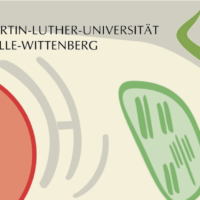Học Bổng Bốn Phương
Tuyển sinh postdoc ngành Sinh Học Thần Kinh tại Duke University
- Chi tiết bài viết
- Bài viết liên quan
Postdoctoral Fellow Position(s) at Duke University in the Departments of Cell Biology/Neurobiology
Marc G. Caron’s Lab
Our laboratory studies the G protein-coupled receptors (GPCRs) that regulate brain dopamine signaling important to common neurological disorders such as depression, schizophrenia, Parkinson’s disease, and drug abuse. The research utilizes cutting-edge biochemical, pharmacological, molecular-genetic, and behavioral approaches.
The applicant will participate in investigations whose scope includes the following two related areas:
- Determining how GPCRs like dopamine receptors maintain neurotransmitter homeostasis in the brain to control specific behaviors. This will be examined in animal models utilizing genetically modified mice.
- Investigating the concept of GPCR biased signaling or functional selectivity as it relates to the therapeutics of neurological disease. This translational line of investigation will provide proof-of-concepts studies for developing pathway selective agents with better pharmacologic profiles and fewer side effects. A successful applicant will be exposed to these and other ongoing related research topics in the process of maintaining his/her own independent research project. Our laboratory will also provide a wealth of biochemical, pharmacological, and/or physiological expertise to facilitate both your research and career development. A recent Ph.D. degree in biological sciences (or equivalent) is required. Candidates should have experience and or interest in neurobiology, pharmacology, receptor biology, signal transduction, or animal models of behavior.
Salary will be based on NIH guidelines.
Please send curriculum vitae and names of three references to:
Marc G. Caron PhD
E-mail: marc.caron@duke.edu
Phone (919) 684-5433)
Departments of Cell Biology, Neurobiology and Medicine,
Duke University Medical Center, Box 3287, Durham, NC. 27710.
Nguồn: Dr. Bùi Thị Thu Hiền







